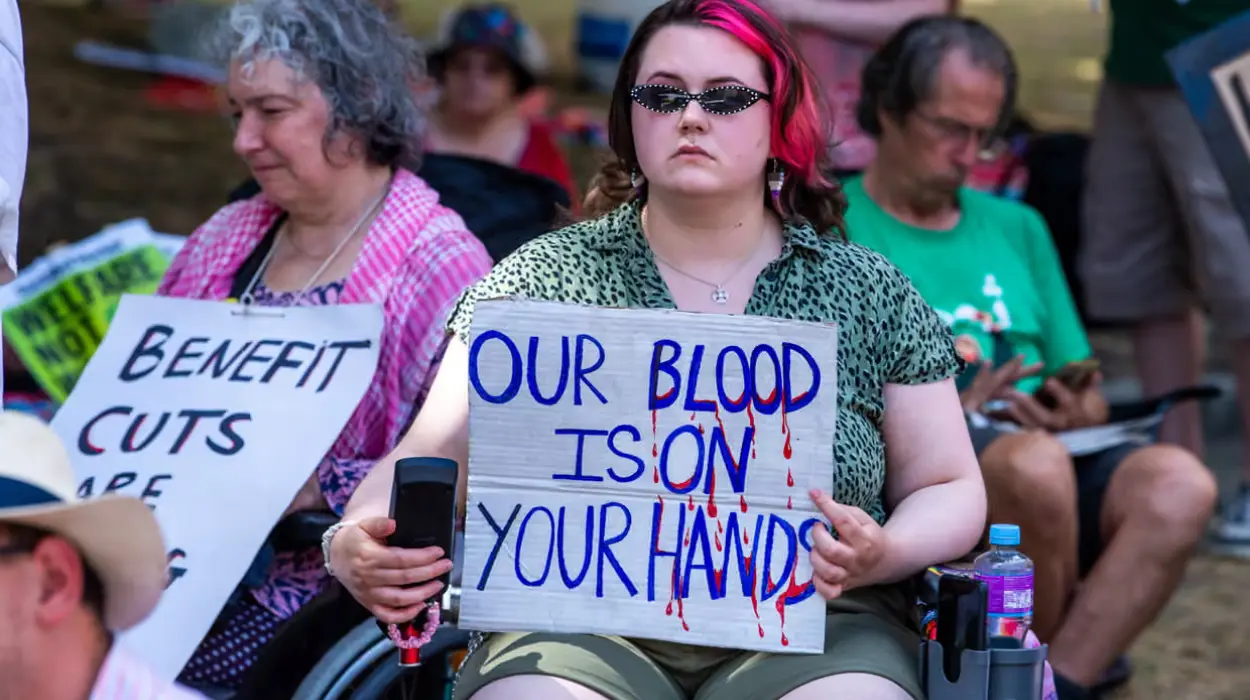UK (Parliament Politics Magazine) – MPs warned that Labour’s revised welfare plans still risk pushing 50,000 newly sick and disabled people into poverty by 2030 as support is halved.
As reported by The Guardian, MPs have raised concerns that cuts to incapacity benefits could still drive 50,000 newly disabled people into poverty by the end of the decade.
What did the report reveal about benefit cuts?
The work and pensions select committee applauded the government’s U-turn on major disability benefit changes after more than 100 Labour MPs formed a bloc to oppose the reforms.
Among the axed proposals were major Pip eligibility reforms that could have removed around 800,000 individuals from benefit access by the end of the decade.
The government dropped its plan to freeze universal credit incapacity support for existing recipients, protecting over 2 million people, but retained a proposal to halve payments for new applicants.
The committee welcomed Labour’s U-turn but stressed that planned cuts to universal credit should be paused until a full impact evaluation is completed.
The government’s welfare plan, aimed at saving £5bn a year, was eventually weakened under pressure. Prime Minister Starmer later admitted that Number 10 mishandled the process.
Current claimants and those with severe conditions will be protected, but from next year, individuals with limited health capacity will face monthly cuts, from £423 to £217.
MPs urged the government to drop a proposed plan aimed at blocking 18 to 22-year-olds from accessing incapacity benefits.
The report stated,
“We share the minister’s concern about young people being trapped in economic inactivity before their working lives have even begun, but we do not see why this means they should lose entitlement to universal credit health.”
The committee welcomed plans to review the flawed Pip assessment system, calling it urgently in need of change. It also praised the government’s pledge to “co-produce” the review with people with disabilities.
What did Debbie Abrahams say about universal credit cuts?
The committee head, Labour’s Debbie Abrahams, stated,
“We welcome the concessions that the government made to the Universal Credit bill, but there are still issues with these welfare reforms, not least with the cut in financial support that newly sick and disabled people will receive.”
She cited official findings suggesting that around 50,000 people who develop health conditions and begin claiming universal credit from next April could fall into poverty by 2030 due to the proposed benefit cuts.
Ms Abraham said,
“We recommend delaying the cuts to the universal credit health premium, especially given that other policies, such as additional NHS capacity, employment support, or changes in the labour market to support people to stay in work, have yet to materialise.”
She added,
“We agree on a reformed and sustainable welfare system, but we must ensure that the well-being of those who come into contact with it is protected. The lesson learned from last month should be that the impact of policy changes to health-related benefits must be assessed before policy changes are implemented to avoid potential risks to claimants.”
UK Government stance on Universal Credit cuts
A government spokesperson stated,
“Our welfare reforms will support those who can work into jobs and ensure there is always a safety net for those who need it. The impact assessment shows our reforms will lift 50,000 children out of poverty – and our additional employment support will lift even more families out of poverty.”
They added,
“The reforms will rebalance Universal Credit rates to reduce the perverse incentives that trap people out of work, alongside genuinely helping disabled people and those with long-term health conditions into good, secure work – backed by £3.8bn in employment support over this parliament.”
Labour’s U-turn on welfare reform
- Keir Starmer backed down on parts of the welfare reform after a backlash from MPs, with over 130 MPs signing amendments opposing the bill.
- Plans to tighten eligibility for Personal Independence Payment will now only affect new claimants, not existing ones.
- From 2026, new claimants will receive just £54/week in health-related Universal Credit, half the current £105, while existing ones are protected.
- Government’s data shows reforms could push 150,000 people into poverty, including 50,000 children, even after concessions.
- MPs and campaigners criticised the bill for not formally consulting disabled people on the changes.
- Some MPs like Dame Meg Hillier called the changes a “workable compromise”, but others like Debbie Abrahams say the deal wasn’t what was agreed.


